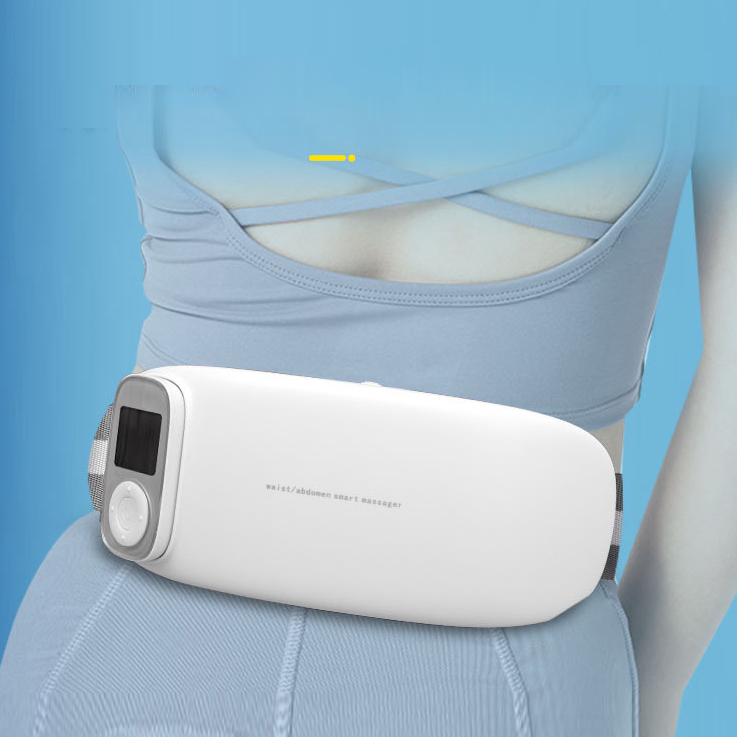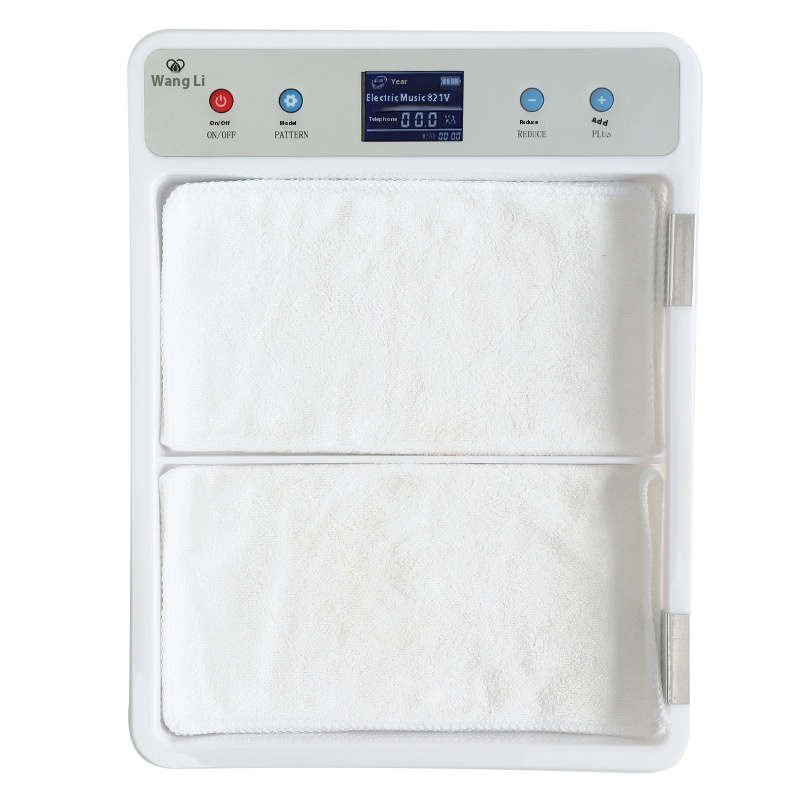How To Deal With Stress And Anxiety


Back Electric Massage Pulse Warm Moxibustion Lumbar Massager
Gift Tree
Approx $129.34 USD


Household Incense Inserted-free Integrated Rechargeable Antiperspirant
Gift Tree
Approx $116.59 USD
Stress and anxiety are natural responses to life’s challenges, but when they become chronic or overwhelming, they can significantly impact your overall well-being. In New Zealand, like in many parts of the world, individuals are constantly balancing personal, work, and social pressures. While some stress is a normal part of life, prolonged or excessive stress and anxiety can lead to more serious health issues, affecting both the mind and the body. Therefore, learning how to manage stress and anxiety is crucial for maintaining a healthy, fulfilling life.
This comprehensive guide provides practical tips and effective strategies for dealing with stress and anxiety. From understanding the root causes of these conditions to exploring healthy coping mechanisms, you’ll find proven techniques to help alleviate stress and anxiety in your daily life. Whether you’re dealing with the pressures of work, personal relationships, or daily tasks, this guide offers valuable insights that can empower you to take control of your mental health and well-being.
Understanding Stress and Anxiety
Stress and anxiety are often used interchangeably, but they are two distinct experiences. Both, however, can affect your physical health and mental clarity.
Stress: What Is It?
Stress is a natural physiological response to a perceived threat or challenge. It can be triggered by various factors, including work demands, relationship issues, financial concerns, and even everyday tasks. Stress manifests in the form of emotional, physical, and behavioral responses, such as irritability, fatigue, headaches, and difficulty sleeping. Stress can be either acute (short-term) or chronic (long-term). Acute stress can be motivating, helping you perform well under pressure. Chronic stress, on the other hand, can be harmful to your health and can lead to conditions like high blood pressure, heart disease, and digestive problems.
Anxiety: What Is It?
Anxiety, on the other hand, is a feeling of fear, unease, or apprehension about a situation or event. While everyone experiences anxiety from time to time (e.g., before an important presentation or meeting), anxiety becomes a problem when it is persistent, irrational, and interferes with daily life. Anxiety often presents itself as physical symptoms such as rapid heartbeat, sweating, trembling, and a sense of impending doom. It can range from general feelings of worry to more severe conditions such as panic attacks or generalized anxiety disorder (GAD).
The Impact of Stress and Anxiety on Health
The effects of chronic stress and anxiety on both physical and mental health are well-documented. When left unmanaged, these conditions can lead to a variety of health problems, including:
1. Physical Health Problems
-
Cardiovascular Issues: Chronic stress can elevate blood pressure, increase heart rate, and contribute to heart disease.
-
Weakened Immune System: Prolonged anxiety and stress can impair immune function, making you more susceptible to infections
and illnesses.
-
Muscle Tension: Anxiety often causes muscle tension, which can lead to headaches, neck and back pain, and other
musculoskeletal problems.
-
Digestive Issues: Stress can disrupt digestive function, leading to conditions like irritable bowel syndrome (IBS), acid
reflux, and indigestion.
2. Mental Health Problems
-
Depression: Long-term stress and anxiety can lead to feelings of hopelessness and may contribute to the development of
depression.
-
Sleep Disruptions: Anxiety and stress are common culprits behind insomnia and poor-quality sleep, which can exacerbate
mental health issues.
-
Cognitive Impairment: Chronic stress can impair memory, concentration, and decision-making, making it difficult to focus or
complete tasks.
How to Deal with Stress and Anxiety: Effective Strategies
Fortunately, there are many strategies and techniques you can use to manage and reduce stress and anxiety. Incorporating these practices into your daily life can help you regain control, improve your mental and physical health, and create a greater sense of balance.
1. Mindfulness and Meditation
Mindfulness is the practice of paying full attention to the present moment without judgment. It’s a simple yet powerful way to alleviate stress and anxiety by focusing your mind on the here and now rather than worrying about the future or dwelling on the past.
-
How to practice mindfulness:
- Focus on your breath: Sit comfortably and focus on the sensation of your breath entering and leaving your body.
-
Notice sensations: Pay attention to the physical sensations you experience—whether it's the feel of your feet on the floor or the warmth of
the sun on your skin.
- Redirect your mind: If your thoughts wander, gently guide them back to the present moment.
- Focus on your breath: Sit comfortably and focus on the sensation of your breath entering and leaving your body.
Mindfulness meditation involves sitting quietly and paying attention to thoughts, sensations, and feelings in a non-reactive way. This practice has been shown to reduce anxiety, lower stress levels, and increase emotional resilience.
2. Breathing Exercises
Deep breathing exercises are one of the most effective ways to reduce stress and anxiety in the moment. When you’re feeling anxious or stressed, your body enters a “fight or flight” mode, which increases your heart rate and shortens your breath. By practicing deep breathing, you can calm your nervous system and promote a sense of relaxation.
-
How to do deep breathing:
- Find a quiet space and sit comfortably.
- Close your eyes and breathe in slowly through your nose for a count of four.
- Hold your breath for a count of four.
- Exhale slowly through your mouth for a count of six.
- Repeat for several minutes, focusing on the rhythm of your breath.
- Find a quiet space and sit comfortably.
Breathing exercises can be practiced at any time, whether you’re at work, at home, or even on the go. This simple technique helps lower cortisol levels and promotes a sense of calm and clarity.
3. Physical Exercise
Exercise is one of the most effective natural remedies for stress and anxiety. When you engage in physical activity, your body releases endorphins, which are chemicals that improve your mood and reduce feelings of anxiety. Additionally, regular exercise helps improve sleep quality, boosts energy levels, and supports overall health.
-
Best exercises for stress relief:
-
Aerobic exercises: Activities like running, cycling, or swimming help increase heart rate and circulation, releasing
tension and improving mood.
-
Yoga: Yoga combines physical movement with mindfulness, helping you stretch, relax, and focus on your breath. It has been
shown to reduce stress and anxiety levels.
-
Strength training: Lifting weights or doing resistance exercises can help increase confidence and reduce tension in the
muscles.
-
Aerobic exercises: Activities like running, cycling, or swimming help increase heart rate and circulation, releasing
tension and improving mood.
Even a short walk around the block or a light jog can have immediate benefits for your mental health, making physical exercise one of the easiest and most accessible ways to combat stress.
4. Cognitive Behavioral Therapy (CBT)
Cognitive Behavioral Therapy (CBT) is a type of psychotherapy that helps individuals identify and change negative thought patterns and behaviors that contribute to stress and anxiety. CBT focuses on replacing irrational or distorted thoughts with more realistic, balanced ones. This can significantly reduce feelings of anxiety and stress, allowing individuals to manage their emotions more effectively.
-
How CBT works:
- Identify negative thoughts: The first step is to recognize thoughts that contribute to anxiety or stress.
- Challenge those thoughts: Ask yourself whether these thoughts are based on facts or assumptions.
- Replace with positive alternatives: Reframe negative thoughts into more realistic and positive ones.
- Identify negative thoughts: The first step is to recognize thoughts that contribute to anxiety or stress.
CBT is widely available in New Zealand through licensed therapists and online therapy platforms. It is an evidence-based treatment that can provide long-term relief from anxiety and stress.
5. Social Support and Connection
One of the most effective ways to combat stress and anxiety is by connecting with others. Talking to friends, family, or loved ones can provide emotional support and perspective. It can also reduce feelings of isolation, which often accompany stress and anxiety.
-
How to connect:
- Reach out to friends or family members you trust.
- Join a support group or community organization to meet like-minded individuals.
- Engage in group activities that bring you joy, such as hobbies or exercise classes.
- Reach out to friends or family members you trust.
Social connections are essential for mental well-being. In New Zealand, where community engagement is highly valued, finding people to connect with can be incredibly beneficial for reducing stress.
6. Proper Sleep Hygiene
Sleep plays a crucial role in managing stress and anxiety. Poor sleep can exacerbate feelings of stress, making it more difficult to cope with daily challenges. Ensuring that you get enough restful sleep is essential for maintaining a healthy mind and body.
-
Tips for better sleep:
- Stick to a consistent sleep schedule.
- Create a relaxing bedtime routine, such as reading a book or taking a warm bath.
- Avoid screens (phones, computers, TVs) at least an hour before bed.
- Create a peaceful sleep environment by keeping the room dark and cool.
- Stick to a consistent sleep schedule.
Prioritizing sleep hygiene can significantly improve your ability to manage stress and anxiety, helping you wake up feeling refreshed and ready to take on the day.
How to Incorporate Stress Management into Your Routine
Incorporating stress management techniques into your daily life is crucial for long-term mental health and well-being. Here are some tips for making stress relief part of your routine:
-
Set aside time for relaxation: Dedicate at least 10-20 minutes each day for relaxation, whether through deep breathing,
meditation, or yoga.
-
Establish a routine: Consistency is key when it comes to managing stress. Try to incorporate stress-reducing practices into
your daily schedule.
- Balance your workload: Learn to prioritize tasks and set realistic goals to avoid burnout and overwhelm.
-
Practice gratitude: Keeping a gratitude journal or taking time to reflect on positive experiences can shift your focus away
from stress and anxiety.
Conclusion
Dealing with stress and anxiety is a part of life, but learning how to manage these feelings effectively can improve your overall quality of life. By incorporating relaxation techniques such as deep breathing, physical exercise, mindfulness, and proper sleep hygiene into your routine, you can significantly reduce the impact of stress and anxiety. In New Zealand, where work-life balance and mental well-being are increasingly prioritized, adopting stress-relief practices can help you stay healthy, focused, and calm in the face of life’s challenges.
Enter your content here





.jpg)









.jpg)





.jpeg)





.jpeg)



.jpeg)








.jpeg)



.jpeg)

.jpeg)

.jpeg)

.jpeg)




.jpeg)
.jpg)

.jpeg)






.jpeg)
.jpeg)




.jpeg)





.jpeg)


.jpeg)

.jpeg)

.jpeg)

.jpeg)







.jpeg)
.jpeg)
.jpeg)





.jpeg)



.jpeg)






.jpg)
.jpeg)









.jpg)


ulva-Logo.jpg)




.jpeg)



.png)















.png)























